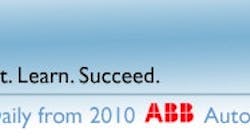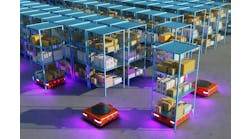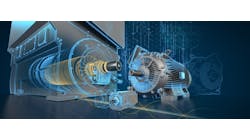To replace or not to replace? That is the question.
The good news: DC drives are easier to commission, set up and operate than they were even three years ago, and they feature advanced controls and are compatible with many fieldbuses.
The bad news: Given all these technical advances, how can you possibly make the right decision about when it's best to upgrade or replace your DC drives or maybe go with an AC system?
New advances and capabilities are nice, but not if they derail your ability to select the most appropriate motor and drive solution for your particular application.
To help users faced with this dilemma, Thomas Junger, ABB's product manager for DCS 800 drives and ACS 850 drives, presented "DC Drives—Upgrade of Replace?" this week at ABB Automation and Power World 2010 in Houston.
"Basically, DC drive replacement costs a lot less than AC system replacement, and this is especially significant at more than 200 hp. When replacing the whole system, however, AC probably costs less, especially below 1,000 hp," explained Junger. "Today's DC drives provide performance and ease-of-use that are comparable to high-performance AC drives because they're easy to install, and they're not difficult to repair in the field. So integrating a DC drive into an existing system is easier than you think because today's DC drives are feature-rich, and because AC and DC often can work together on the same line."
Meanwhile, the advantages of AC drives are that they're used with AC induction motors, so there are no brushes to maintain, and the price of an AC drive system, including the motor, is more cost-effective than a DC drive. AC drives also have better power factors, are easy to install and start up, are available from multiple vendors and can run motors efficiently across the whole speed range. However, the disadvantage of AC is that the drive is fundamentally more complex, involving volts and amps and hertz. Also, line regeneration is possible, but expensive, and brake choppers are sometimes necessary, but they waste energy and give off heat.
Despite these many differences, there are some areas where DC and AC drives come to a tie. They also have comparable drive features, ease of commissioning when looking at state-of-the-art DC drives, as well as reliability and maintenance of the drive.
In essence, Junger recommended that users replace their existing equipment with an AC system when:
- The existing DC motor is near its end of life,
- Power factor and distortion are an issue, such as when the DC motor has a poor power factor when running below base speed, or when you're paying a penalty or need to add a power factor correction, or when there's an IEEE 519 requirement;
- The motor is small, perhaps less than 200 hp, so the money difference becomes insignificant given the many benefits that will be gained with an AC system; and
- The machine can be out of service for a longer period of time.
Users should upgrade their DC drives when:
- You want to save money, as when the DC drive replacement costs less than AC system replacement throughout the HP range;
- The existing DC motor is in decent shape, and spares are readily available;
- Your situation requires fast upgrade with minimal downtime.
"Users also should consider a DC drive or system replacement for large motors, especially above 1,000 hp or above 690 volts; if they have a large regenerative load; or if their DC motor is not easily replaceable with an AC motor," explains Junger. "This may be because of differing shaft height and shaft diameter, difficult position or hard-to-reach components, or if they their application has special cooling needs."




